Adama reunite with his family after a few years living in a daara
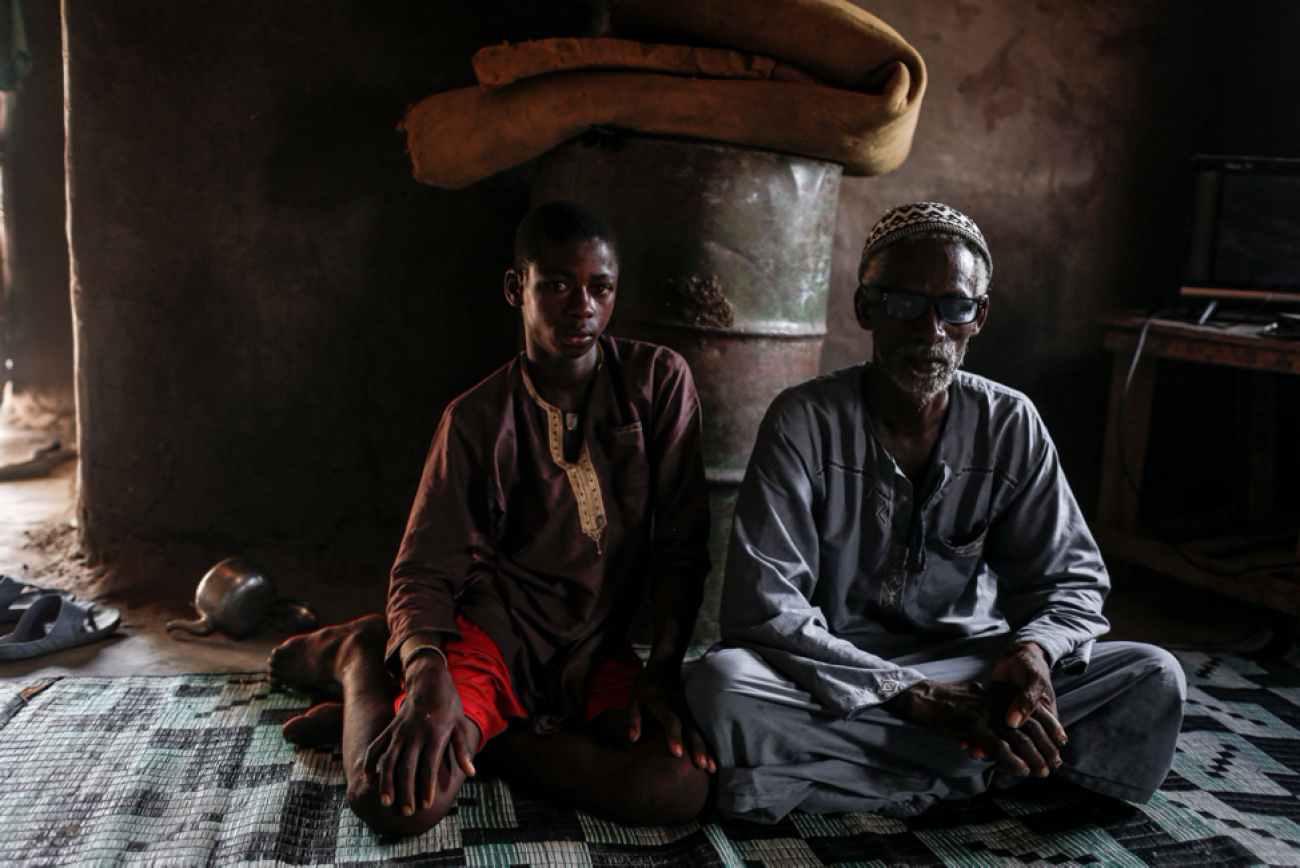
Twelve-year-old Adama Diamanka sat on a straw mat in a village near Kolda, surrounded by relatives eager to see him...
Twelve-year-old Adama Diamanka sat on a straw mat in a village near Kolda, surrounded by relatives eager to see him. Under the chatter that filled the room, Adama at times looked pensive and bewildered, as if he had yet to take in his new reality.
Just a week ago, Adama was living a daily plight two hundred kilometers away from his hometown. ‘’Every day after waking up at 5am to study the Qur’an, we were sent out to beg for money. Later at night, after all our chores were done, we were forced to return to the city and beg some more. If we didn’t make enough money, the serigne daara[1] hit us.’’
Adama was describing life in an isolated, neglected daara[2] in the forest of Bignona in the region of Ziguinchor that had recently been inspected and closed by the local Prefet as part of a nation-wide plan to shutter daaras that practiced forced begging, abuse or neglect. The government-initiated ‘’Retrait de rue’’ operation, which first launched in 2016, was revived during the COVID-19 lockdown as public health concerns incentivized the withdrawal of talibé[3] children from daaras failing to meet safety standards.
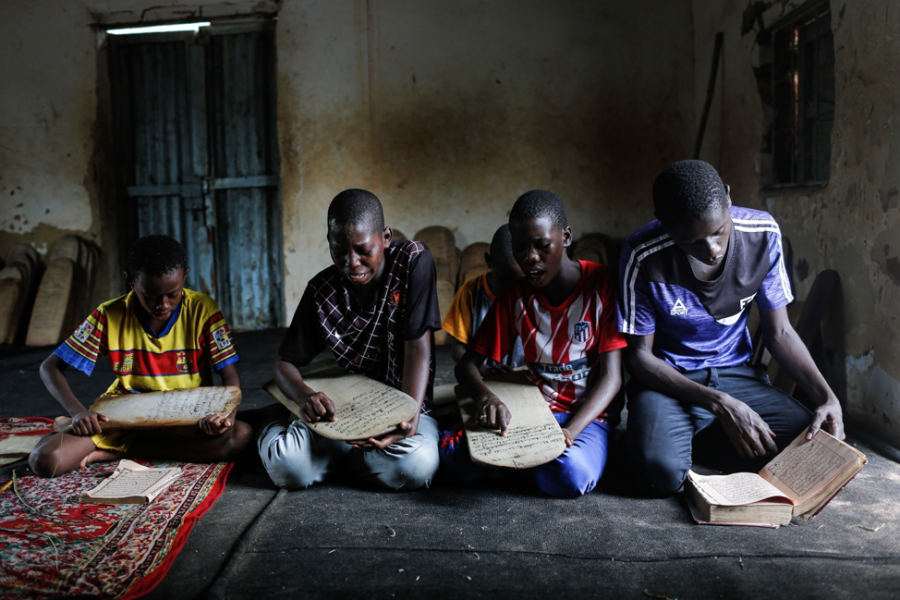
Talibé children recite passages from the Quran written on traditional wooden boards in a daara in Bignona, Senegal. While modest, the daara is well-maintained, does not practice forced begging, and only offers daytime classes. In Senegal, efforts are being made to boost ‘model daaras’ that do not enforce begging nor corporal punishment. UNICEF is working with the government to implement legislation to regulate Quranic schools and teachers, and with communities and religious leaders to ensure children’s rights are realized.
‘’The COVID-19 context was a historical opportunity to crack down on child exploitation’’, says Babacar Ndiaye, the Prefet of Bignona who in May launched procedures to shut down daaras that posed a danger to the health, safety and wellbeing of children such as the one where Adama was found.
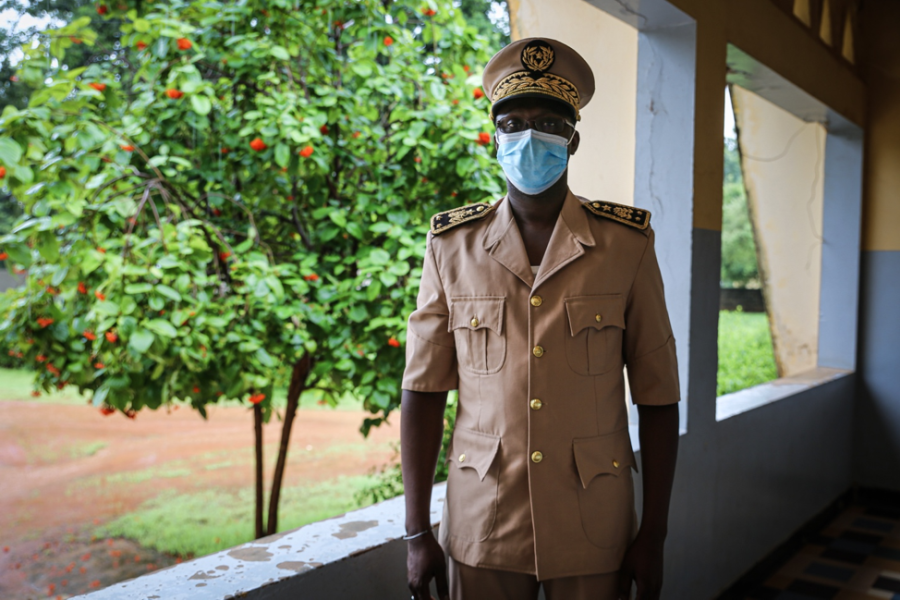
Babacar Ndiaye, the Prefet of Bignona, stands on the porch of the Prefecture building to shelter from a downpour during Casamance’s rainy season. The Prefet started closing unregulated daaras in the Bignona vicinity in May 2020 under the nation-wide ''Retrait de rue'' operation to end the exploitation of talibé children in Senegal, taking advantage of the COVID-19 pandemic to shutter crowded, below standard daaras.
With its green landscape and tropical climate, Bignona looks like many towns in the Casamance. It is also a common destination for talibé children enrolling in daaras with some 4,000 coming from all over Senegal. According to Human Rights Watch, talibés account for a significant number of children requiring protection and emergency assistance in Senegal.[4] ‘’It’s a cop-out solution’’, emphasizes Ndiaye, for parents from poor villages to send their children to a daara with very little follow up. While most families remain unaware of poorly maintained daara conditions, some also financially benefit from the forced begging.
In line with the national strategies to strengthen coordination between local authorities and conduct public sensitization, Ndiaye began by mapping out the daaras, convening serigne daaras to workshops, educating the community and convincing those with a financial interest in begging to support its eradication. ‘’We did everything to make this a community fight’’, he explained. ‘’And in the process, we came to realize that we had a lot of local support, but there were obstacles to sending talibé children home that we had to solve.’’ For example, Ndiaye decided to put kits at the disposition of the community actors to help them manage the returnee process, an approach that forged allies. ‘’Once we completed this step, we had a whole community of serigne daaras ready to support the program’’, rejoices Ndiaye.
Mame Thierno Haidara, the regional head of UNICEF’s partner NGO La Lumière in Kolda that assists returnees, describes the complex process of kin tracing, emergency housing, psycho-social support, family mediation, and reintegration that the process entails. Adama’s case highlights how a strong coordination of local systems of child protection services, supported by UNICEF, works to guarantee the safe return of the children to their parents.
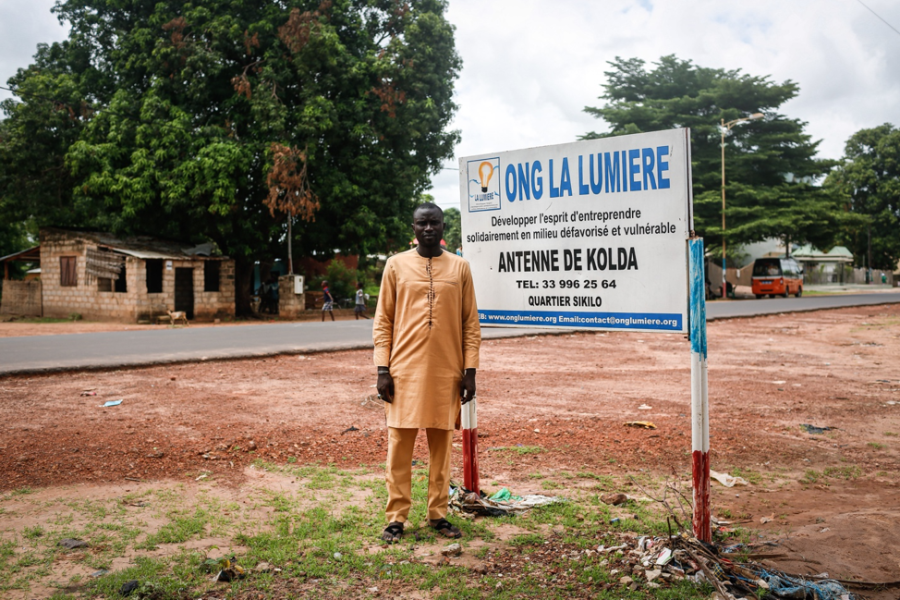
Mame Thierno Haidara, the regional head of La Lumière NGO in Kolda, stands by the entrance of his office before going on a follow-up visit to a recent returnee. The NGO is one of UNICEF Senegal’s strategic and technical partners in the Casamance for providing support to child returnees taken out of exploitative or neglected daaras. The NGO receives up to 30 return cases per month though mentioned that there has been an uptick in returnees during the COVID-19 pandemic.
Once the daara in Bignona was shut, the Prefet of Bignona contacted the Prefet of Kolda about returning Adama home. Cases like Adama are then referred to the regional AEMO[5] coordinator who provides legal support. Then, the CDPE (Departmental Child Protection Committees chaired by the prefets) transported Adama home to his family. Once returned, La Lumière follows up with a reintegration plan for the returnees.
After four years away from his family, Adama says he was very happy when he found out he was going home. ‘’I missed everything about my hometown’’, he confides.
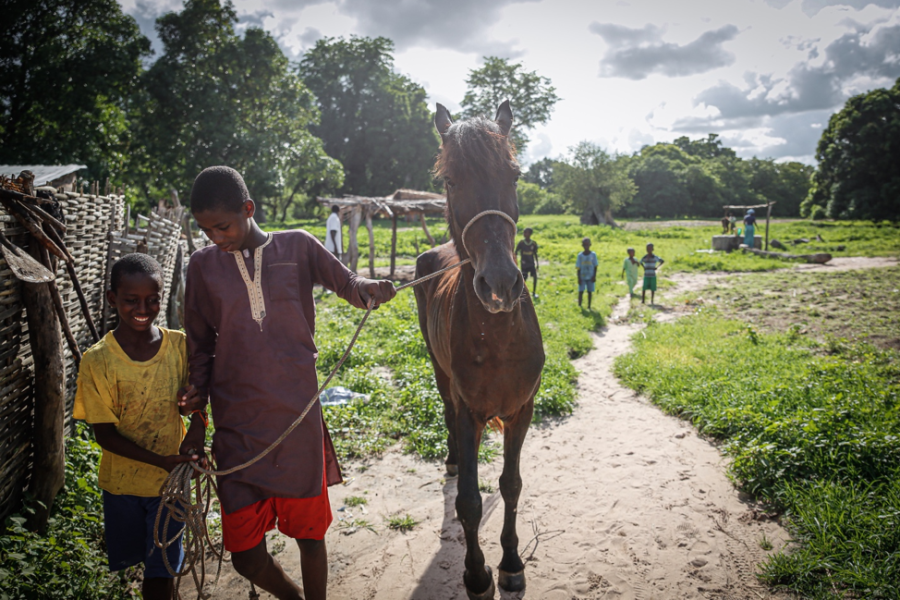
Adama Diamanka, a twelve-year-old returnee from the village of Sare Wali near Kolda walks his horse accompanied by his best friend. Adama, who has been home for a week after living in a faraway daara for the past four years, says he relishes his newfound autonomy and takes prides in undertaking chores like ploughing the fields and collecting honey in his village.
As his relatives dispersed that afternoon, Adama, whose mother says has found a new sense of autonomy, headed to the fields with his plough horse. His best friend skipped by his side. Mame Thierno from La Lumière joined the walk, thinking about Adama’s future. ‘’We have to really prioritize the follow-up once the talibés return home. It’s not just returning them that matters, but the follow-up part, to make sure they find a life project.’’
As for Adama, he says he wants to continue studying the Qur’an, though his family now agrees that there is no need to go far away for that. Moreover, Adama’s relatives conjured that religious education combined with modern schooling, such as by integrating literacy and numeracy into daara curriculums, would be a solution. Yves Kassoka, the Head of UNICEF’s regional office in Kolda, underlines that ‘’UNICEF supports the right to education in any form, as long as there is no exploitation.’’ On the ground in the Casamance, UNICEF continues to support Senegal’s commitments to upholding children’s rights to health, nutrition, medical care, education, and a safe and nurturing living environment.
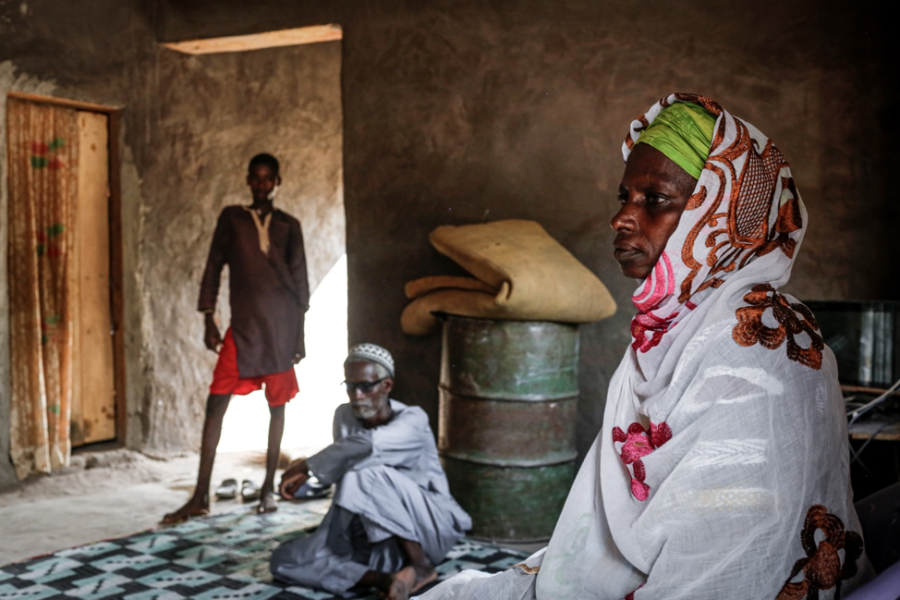
Adama Diamanka’s mother sits in the family’s living room in the village of Sare Wali near Kolda as Adama and his father relax behind. Twelve-year old Adama was returned home a week ago when the daara he was living in was closed by the authorities. The closure of daaras is often a controversial subject as it touches some of Senegal’s most sensitive facets such as religion, family authority and tradition.
[1] Traditional Qur’anic teacher
[2] Qur’anic school
[3] Student enrolled in a daara
[4] These Children Don’t Belong in the Streets: A Roadmap for Ending Exploitation, Abuse of Talibés in Senegal. Human Rights Watch, December 2019. Page 32
[5] “Non-Institutional Educational Action” or Action educative en milieu ouvert’’, a social services and legal assistance agency under the Justice Ministry.





